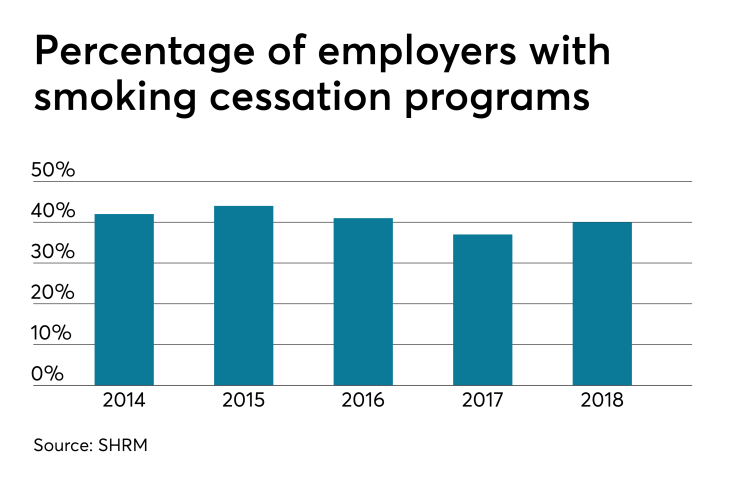Dr. Yusuf Sherwani has seen the future of smoking cessation programs. As co-founder and CEO of Quit Genius, his vision is to supplement human coaching with digital technology to bolster a highly personalized and nuanced approach to help users quit smoking and vaping.
The mobile app automates the user experience by understanding thought patterns, negative thinking and the triggers around smoking, like stress or social pressures. It starts with a few minutes of daily engagement with a board-certified coach and features wearable technology in the form of a breathalyzer that tracks the level of carbon monoxide, a dangerous toxin that’s produced when someone smokes. That level decreases as individuals wean themselves off smoking.
Program participants use an interactive journey map to navigate their way to success, along with a smoking diary, which helps them develop an understanding of exactly what triggers them to smoke (i.e., a certain place, time or person), as well as why they want to quit (i.e., health reasons, family or money).
Quit Genius tracks data for when program participants had a cigarette and cravings were strongest to determine which combination of nicotine replacement therapies could be most effective.
“It might be a 2-milligram gum and 8-hour patch, which we’ll tailor based on their craving profile,” Sherwani says. “This is in preparation for their quit date and tracks adherence over time after their quit date as well.”
In some cases, there could be multiple addictions involving e-cigarettes alongside nicotine in tobacco and alcohol. After realizing how it slowed quit rates, coaches were retrained to better address dual behaviors and tailor their approach to those behavioral characteristics.
Last year, Quit Genius data showed that a growing segment of users who never smoked combustible cigarettes had become addicted to e-cigarettes or vaping and had difficulty quitting. Others traded traditional cigarettes for e-cigarettes or vaping. Sherwani says it can be even more difficult to quit because there are few restrictions associated with e-cigarettes. The U.S. Surgeon General recently decried a national vaping epidemic that disproportionately affects young people. So far, there have been six deaths in 33 states and a spate of lung injuries.
Of the billion smokers worldwide, 70% are looking to quit but just 3% are successful, according to the World Health Organization and the Centers for Disease Control and Prevention. Quit Genius boasts a 36% smoking cessation rate with 60% fewer cigarettes smoked. This has generated an estimated $155 million savings for employers. Since 2017, the app has been used by two Fortune 500 companies and three health plans and is available to the dependents of employees.
“There is a huge trend around employers looking for ways to optimize their healthcare spend and deliver great consumer feeling solutions to their employees, and that is why they have been so intrigued with digital health” says Robby Peters, VP of business development with Sequoia Consulting Group and co-founder of PeopleTech Partners.
Quit Genius is one of more than 400 early-stage HR technology companies that PeopleTech Partners has considered on behalf of its employer clients. Peters was impressed with the app’s quit rate of more than 60,000 people, given how most smoking cessation programs have very little uptake and the difficulty of tracking results.
With healthcare costs rising like never before, Peters believes it’s essential that brokers and advisers “look to best-in-class digital health solutions.” But it’s important to make sure the product or service is peer-reviewed and has a strong support from the scientific community, he says.






